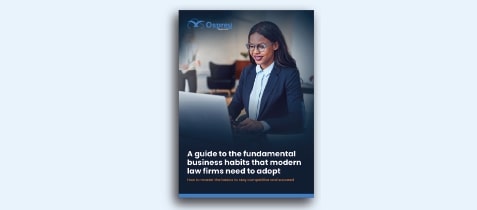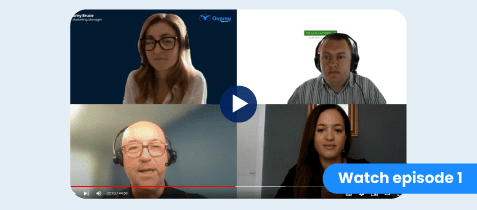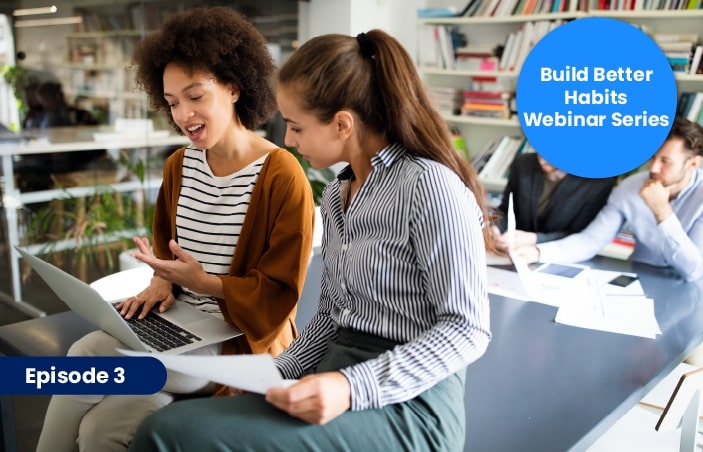Contents
Why law firms need to fail to improve their long-term success
Success starts with failure
I recently read Matthew Syed’s book titled Black Box Thinking and it made me reconsider how we should view success. It reminded me that success starts with failure.
Syed’s theories suggests that learning from mistakes, analysing data taken from failures, and incremental continuous improvements is the most effective way to become a high performance individual, business, or team.

The term ‘Black Box Thinking’ is taken from the aviation sector. All airplanes are fitted with a black box (now bright orange), which records and tracks all actions and audible in the cockpit. The black box is always reviewed after a fatal accident or near-miss. The data and analysis recovered is then shared to all airlines to ensure effective new training, software, or information is applied across the sector to help improve the overall safety of air travel.
To further understand Black Box Thinking, Syed defines two types of mindset – a fixed mindset and a growth mindset – which determine how people think about success and high performance.
People who have a fixed mindset believe talent is the key requirement for success.
Those who have a growth mindset recognise that talent is an element of success but believe it’s not enough. You need hard work, persistence, and the right environment and as Syed says, “people with a growth mindset typically say things like ‘you get out what you put in’.”
Fixed vs growth mindset
Syed illustrates this concept by contrasting the behaviours of the aviation industry and another safety critical industry: healthcare. Syed explains how the aviation industry has a growth mindset because they realised that simply hiring talented people is not enough. They utilise and act upon the data provided in near misses or fatal events to learn and improve safety.
Compared to the healthcare sector who, Syed explains, has a fixed mindset. Doctors and those at the top of the hierarchy are considered unfailing, perfect, and held to enormously high standards. The individualistic pressure often creates a tendency to become defensive, to cover up mistakes to avoid looking untalented. There’s also the problem of a high blame because why would doctors be open about honest mistakes if they can be sued. The combination of a fixed mindset and high blame inevitably creates a culture that suppresses valuable information.
Redefining failure to improve long-term success
The key challenge of a fixed mindset is that it limits opportunities. A fixed mindset ignores the learnings that can be taken from failed attempts or overlooks new solutions to existing challenges.
Syed explains, “only by redefining failure will we unleash progress, creativity, and resilience.” One of the four fundamental habits that Osprey believes modern law firms need to adopt to improve long-term success is having a continuous improvement mindset. A key component of a continuous improvement mindset is the willingness to test, trial, and experiment – which means getting comfortable with failure. Laurence Sutton, executive coach and practice manager explains in episode three of our Build Better Habits webinar series that, “creating a bit of disruption [in the firm] helps keep the continuous improvement mindset going so we review how we could do things better. We’ve tried different things, some haven’t worked, but others had us question ‘why have we been doing it like this for so long?’”
A commitment to continuous improvement focuses on achieving marginal gains across every aspect of the firm to improve long-term success. The focus is to embed a culture of innovation where all employees are responsible for optimising processes to best meet the firm’s goals. Individuals need curiosity, tenacity, and creativity to seek out improvement. During episode one of our webinar series, Cecile Papin from Coadjute explains how, “it’s important to establish a culture of innovation within a law firm. You have to assess how the firm will react during periods of experimentation and which structures, behaviours, and goals must be in place to enable innovation.”
Syed highlights that the paradox of success is that it’s built on failure. We only know the right way because of learnt behaviours – for example, lawyers often reference previous cases to help win a current case. But when the world is continually changing, it can become a dangerous game to not continually test and experiment on existing habits to understand if they’re still relevant, rather than continue with internal assumptions.
Why is a growth mindset important for law firms?
Law firms may be busy today with happy clients, but it only takes one move or innovation from your competitors, society, or the economy for that to change. And the risk is that change could have a detrimental impact on your success. The legal sector is rife for disruption and it’s only a matter of time before doing the same thing for decades will start to falter if it hasn’t already. Leah Steele, non-practising solicitor, now burnout mentor at Search for Serenity explains in episode four of our Build Better Habits webinar series, “you can’t keep doing the same thing and expect a different outcome. There needs to be time to reflect and consider change. It’s about having a curious mindset.”
Don’t wait for the pressures of a major unplanned event, such as a pandemic, to make change. It’s important for employees, law firms, and clients that the legal sector looks to disrupt the status quo to make optimisations and improvements for the better. Laurence explains how he “tries to recreate disruption naturally, without the same pressures [of the pandemic], to get the team into the mindset of continuous improvement. If you don’t create that mindset, it’s a big risk.”
Sharing the outcomes of experimentation – whether it’s a success or failure – across the sector could be the hidden secret to finding solutions to the key sector-wide challenges. But importantly, testing ideas and learning from the results is essential to improving the competitiveness of your law firm helping you increase profitability, retain top talent, and enhance client service.
How to implement a growth mindset into your law firm?
Syed explains how a growth mindset needs two components in order for teams to learn from mistakes and implement change effectively:
- A system – processes, technology, and data that’s geared to take advantage of errors. The system should makes it easy to share information and implement change.
- A mindset – a culture that provides safety to share mistakes. The mindset of all employees needs to gear towards honesty, creativity, and relentlessness.
A growth mindset needs both the collective mindset of the people as well as the right system in place. They can’t work alone.
Having the right system, environment and tools in place helps firms to easily test, experiment, and trial ideas to learn from the outcome. Crucially the system should provide the necessary data to evidence where improvements are needed. Through trial and error of ideas the system will help highlight the best fit for your goals and help the continuous optimisation of processes.
Although the benefits of testing ideas and ongoing improvement seem obvious, humans are hard wired to think the world is simple, so we tend not to bother conducting tests because we think we know the answers. We typically go off gut instinct.
This typically biases a top-down culture rather than a bottom-up one. Steele believes, “for me, the empower employee mindset is about unlocking the traditional hierarchy structure that says the person at the top knows more and instead widening it out to say, ‘what do we all know?’. We can get a much richer source of information that way.”
Modern law firms improve long-term success by prioritising ongoing optimisation
A willingness to test assumptions and be open to new ideas is a mindset. You need to have a collective focus on the big picture to get creative and problem solve current challenges. But creativity isn’t enough, you need measurement, data, and action to successfully implement change. Syed explains, “success is a complex interplay between creativity and measurement; the two operating together. The two sides of the optimisation loop.”
This means that for law firms, hiring good talent isn’t enough. The culture of a firm is what creates success. It’s easy to quickly squeeze out the creativity and ideas of someone in a culture where people don’t have the psychological safety to speak out. Joanna Gaudoin, Managing Director of Inside Out Imagery, explains that to empower employees to perform their best people need to, “feel safe to speak up about the negative stuff. Whether that’s about process they aren’t keen on, or how it could work better with other people.”
Long-term success for law firms will come from a change in mindset that isn’t focused on individualism and competitive performance, but a mindset that embraces failure to learn and implement better. It’s important for teams to remember that failure is ok – it’s starts the path to success. Learning from mistakes is the key to growth and improvement and as long as you don’t make the same mistake twice, you’re moving in the right direction. The idea of failure can feel scary but the rewards feel brilliant.
Matthew Syed’s aim is to “create a revolution in the way we think about failure”, and this is how law firms find solutions to sector-wide challenges.




